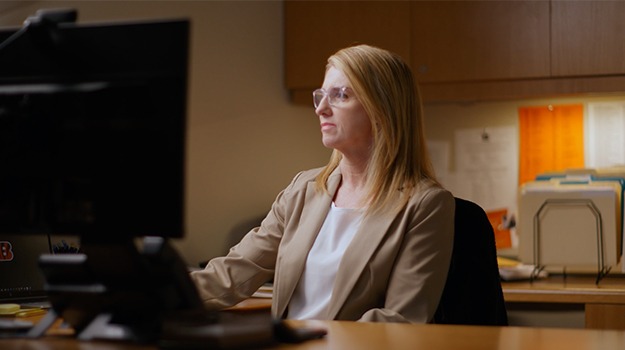


































Stay ahead of the curve and make informed decisions with the help of our expertly curated content. Explore the latest trends, best practices, and industry benchmarks designed to drive business success.

Stay informed on HR & Tax compliance topics to ensure your organization is protected. Discover helpful webinars, guides, how-to articles and more!

Make sure you have the answers, benchmarks, and helpful resource tools you need to empower your leaders and build a winning team.

Get organized visual insights on HR topics from up-to-date research, surveys, and studies.

Know the difference between FICA and FUTA? Get quick industry explanations and definitions for HR terms in our glossary.

Gain valuable insights from industry experts in our award-winning webinars covering everything from recruiting and hiring, to compliance and engagement.

Empower yourself and your team with HR knowledge. Find answers to common HR questions in our informative articles.

Get HR-specific forms, customizable templates, checklists, sample letters and more! Here you’ll also find whitepapers with expert guidance and industry research on critical HR topics to help you navigate.

Get inspired! Paycor customers love to tell their stories. Learn how HR leaders use Paycor to save time, reduce costs and empower their teams.

Find the tools you need to inspire employees, improve efficiency, and align your workforce to your company’s top priorities.

Optimize productivity, track labor costs, and confidently pay employees. Get updated guidance for emerging HR rules, original research and expert advice.

Craft an unforgettable experience for every phase of the employee lifecycle. Get guides on corporate culture, allyship, DEI, checklists for mentors and more.

Discover how to best support employees with benefits resources. Get resources to understand new options available, how benefits impact retention and more.

Paycor delivers deep product functionality, standard integrations, and certified expertise in sales and service to meet the needs of the industries and organizations we serve.

In times of uncertainty you never have to go it alone. Count on Paycor to deliver tools to help you maintain compliance and deliver clear communication.

Stay informed on HR compliance topics to ensure your organization is protected from hefty fines or mistreatment. Discover helpful webinars, guides, how-to articles and more.

Discover helpful webinars, guides, how-to articles and more to keep you informed on compliance topics, leadership best practices and ways a payroll and HR partner can help save you time, money and simplify processes.

Find the resources you need to build, support and advocate for your diverse workforce.

Lighten your load with customizable HR templates. Get a jump start on everything from interview questions to open enrollment letters and more.

Want to save time on tedious tasks? Discover how HR technology solutions increase efficiency and save costs in the process.

Investing in leaders yields great rewards. Get the insights, tools and resources to build a culture of effective leadership in your organization.

For Brokers, Paycor can help you offer your clients an HR and Payroll platform that integrates seamlessly with your benefits system and dramatically decreases your clients’ administrative burden while meeting their unique needs.

Check out our library of tax compliance resources and make sure you’re up to date on the latest federal and state regulations and laws to help keep your organization compliant.

Stay ahead of the curve and make informed decisions with the help of our expertly curated content. Explore the latest trends, best practices, and industry benchmarks designed to drive business success.

Our approach to virtual first work

Create a workplace where people thrive. From onboarding to retention, explore proven strategies and practical insights that help organizations build meaningful employee experiences.

From smarter hiring to automated payroll, discover how artificial intelligence is reshaping HR and empowering organizations to make data-driven decisions. Our professional resources break down complex AI concepts into practical applications that drive real business results.

Streamline your HR operations with seamless connectivity. Explore practical guides and resources that help you maximize your HR software investments with technology integrations.

Navigate year-end responsibilities with confidence. From tax compliance to benefits enrollment, explore comprehensive guides and checklists that help HR teams master critical end-of-year tasks.

Build a stronger financial future for your workforce. Find practical resources that help organizations design and manage competitive retirement benefits that attract talent and support long-term employee wellbeing.

Create comprehensive insurance programs that protect your people. From health plans to voluntary benefits, discover resources that help HR teams design, implement, and manage effective insurance offerings.

Run your franchise with confidence. Explore comprehensive guides and checklists that help you build strategies, manage costs, and increase efficiencies.





Workers prioritize diverse experiences & relationships. Our guide helps build inclusive recruitment & retention strategies for all. Download our guide and learn how to:






















